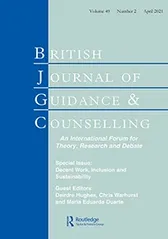IER News & blogs
Conference of the International Working Party on Labour Market Segmentation
IER, together with Copenhagen Business School and FAOS, University of Copenhagen, organised the 42nd conference of the International Working Party on Labour Market Segmentation (IWPLMS), which took place at Copenhagen Business School on 5-6 September. The conference was well attended and both international academic scholars and practitioners took part in the conference.
Good jobs and why they matter
 Both the Prime Minister and Chancellor are promoting 'good jobs' as integral to their vision of a successful future UK economy, post Brexit and net zero carbon. But we haven't heard much from them on good jobs being part of the Levelling Up agenda. Good jobs are not a pick ‘n’ mix option - they should be hardwired into the UK economy, explains Professor Chris Warhurst.
Both the Prime Minister and Chancellor are promoting 'good jobs' as integral to their vision of a successful future UK economy, post Brexit and net zero carbon. But we haven't heard much from them on good jobs being part of the Levelling Up agenda. Good jobs are not a pick ‘n’ mix option - they should be hardwired into the UK economy, explains Professor Chris Warhurst.
Journal Special Issue on Decent Work, Inclusion and Sustainability
 Along with IER Associate Fellow Dr Deidre Hughes OBE and Professor Maria Eduarda Duarte of the University of Lisbon, IER’s Chris Warhurst has guest edited a special issue of the British Journal of Guidance and Counselling (Vol. 49) on Decent Work, Inclusion and Sustainability. Just published, the special issue examines the implications for career guidance and working life transitions in the context of rising inequalities and inclusion deficits in labour markets internationally.
Along with IER Associate Fellow Dr Deidre Hughes OBE and Professor Maria Eduarda Duarte of the University of Lisbon, IER’s Chris Warhurst has guest edited a special issue of the British Journal of Guidance and Counselling (Vol. 49) on Decent Work, Inclusion and Sustainability. Just published, the special issue examines the implications for career guidance and working life transitions in the context of rising inequalities and inclusion deficits in labour markets internationally.
Together with Deirdre Hughes, Emma Benger and Mandy Ifans, Chris Warhurst also co-authored an article in this special issue on Building better futures: decent work, inclusion and careers support services in the UK.
Creating Decent Work in Scotland

In-work poverty is a major socio-economic problem. In 2013, 52% of working age adults and 59% of children in Scotland were living in households where at least someone was in work. Almost a fifth of the workforce was paid below the living wage; of which 64% were women. Underemployment and job security are also issues: in 2014 around 180,000 workers in Scotland were underemployed and 120,000 on zero-hour contracts. In 2015, the Scottish Parliament launched an Inquiry into Work, Wellbeing and Wages.
This project was a response to these problems. It involved applying IER’s existing expertise in job quality to the creation of a set of measures of Decent Work for Oxfam, one of the world’s leading charities. The aim of the project was to inform public debate and political party thinking ahead of the Scottish elections in May 2016 by proposing a decent work agenda for Scotland. Thereafter, the project hoped to encourage the explicit adoption of the decent work agenda by the Scottish Government post May 2016. Led by Oxfam, the project was co-branded with IER and the University of the West of Scotland. Chris Warhurst and Sally Wright were involved from IER. Their participation was enabled by funding from Warwick’s ESRC Impact Accelerator Account.
The project wanted to provide low wage workers with a voice about what mattered to them and so used mixed participatory research methods to ask people about their priorities, concerns and ambitions about what they needed to live well. Data was gathered from across Scotland through focus groups, semi-structured interviews, street stalls and a YouGov online opinion poll. From this data Sally Wright developed a set of weighted rankings for decent work. Even before publication of its findings, the project attracted interest and support from the Scottish Parliament. The Inquiry into Work, Wages and Wellbeing reported in early 2016; after hearing evidence from the project, it wanted the Scottish Government-established Fair Work Commission to ‘consider carefully the findings of Oxfam‘s work’ in its deliberations. Evidence was submitted to this Commission as well as the House of Commons Scottish Affairs Committee.
The report from the project – What makes for decent work? A study with low paid workers in Scotland – was published later in 2016 and was co-authored by Sally Wright. It was launched in the Scottish Parliament with the Scottish Cabinet Secretary in attendance. Throughout 2016 the project gained considerable social media, newspaper and radio attention in Scotland and was cited by the Cabinet Secretary for Fair Work, Roseanna Cunningham MSP, during committee debate about the work, wages and wellbeing report as well as by John Finnie MSP during a debate in the main parliamentary chamber about the living wage and Scottish football clubs. Its impact is on-going and is monitored by Oxfam.
Engaging employers in building better quality jobs
This conference organised jointly by the OECD, Warwick IER, the Work Foundation, and the Centre for Cities will bring together stakeholders from national government departments, cities, Local Enterprise Partnerships (LEPs) as well as business, NGOs and research institutions to discuss the key challenges facing the United Kingdom in building more and better quality jobs. The conference will focus on discussing the key challenges and opportunities from Brexit and sharing local solutions as well as international lessons from OECD countries on how effective skills policies can foster productivity and inclusive growth. Register for the conference at The Shard on Thursday 2 November 2017.
